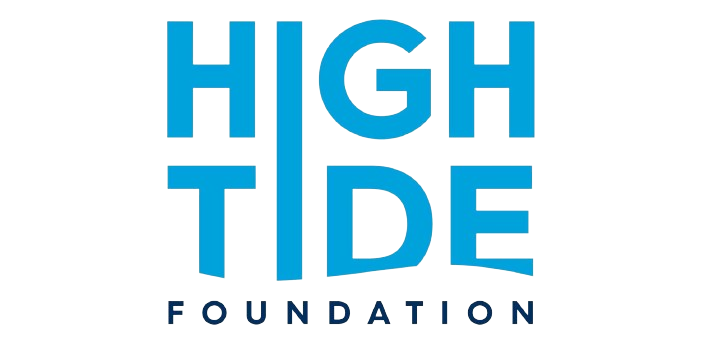Regulatory & Policy Alignment
CIWPs Supporting Alignment Between the Voluntary Carbon Market and Evolving Climate Policy
As global climate governance continues to evolve, countries and international organisations are developing policies and regulatory frameworks to meet their national and international climate goals.
This includes commitments made under the Paris Climate Agreement, as well as national climate standards, compliance mechanisms like emissions trading systems and carbon taxes, and standards that define robust measurement, reporting and verifications systems.
The following Continuous Improvement Work Programs (CIWPs) are designed to ensure the CCP Assessment Framework for carbon credit quality aligns with this dynamic policy landscape. There are currently three that focus on supporting coherence and integration between the VCM and regulatory and policy developments.
Regulatory & Policy Alignment Working Groups

Paris Alignment: Corresponding adjustment
It is broadly understood that double counting must not occur where carbon credits are transferred internationally for use towards Nationally Determined Contributions (NDCs) under the Paris Agreement. This understanding is also reflected in Article 6 guidance agreed at the UNFCCC COP26 in 2021 and further COPs.
There is, however, an active debate in the VCM about how to manage double counting in all its forms in the context of Article 6. This includes whether double claiming with NDCs should be avoided on the basis of a corresponding adjustment as set out in Article 6 implementing guidance, in the context of companies using carbon credits towards voluntary climate commitments.
The Integrity Council considers that this issue needs further study. As countries move to implement systems to deliver on their Paris Agreement commitments, the VCM and host country systems will increasingly interact.
This program explores this mechanism, to consider:
- Identification and assessment of scenarios related to corresponding adjustments;
- Impacts of corresponding adjustments and implications for carbon credit integrity.


Paris Alignment: Share of Proceeds for Adaptation (SOPA)
This CIWP focuses on the financial mechanisms that allocate proceeds from carbon credit transactions to international climate adaptation funds under the UNFCCC.
Funding adaptation efforts is particularly important for supporting countries in the Global South and the most vulnerable developing nations, since this is finance that can help Indigenous People and local communities cope with adverse climate impacts.
However, many carbon projects also deliver substantial adaptation and resilience co-benefits directly to local communities. This work program is exploring the possibility of contributions from VCM projects to multilateral funds that aid climate change adaptation, further strengthening the sustainable development benefits and safeguards that the Core Carbon Principles (CCPs) bring.
Paris Alignment: Baselines and Nationally Determined Contributions (NDCs)
Accurate and relevant baselines are essential for assessing the true impact of carbon reduction projects, ensuring that they contribute effectively to national and global reduction targets.
This work program focuses on how projects in the voluntary carbon market should align crediting baselines with countries’ Paris Agreement NDCs, as outlined in a country’s NDCs and Long-term Low-Emission Development Strategies.
This alignment is key to integrating the voluntary carbon market into national and international climate strategies and ensuring ongoing alignment and transparency as countries advance their policies and programs to reduce emissions under their Paris Agreement NDCs.

Paris alignment CIWP report (September 2025)
This report sets out practical recommendations across three areas – corresponding adjustments, a Share of Proceeds for Adaptation (SOPA), and Paris‑aligned baselines – to strengthen high‑integrity carbon markets. The findings will inform future refinements to the Core Carbon Principles (CCP®) Assessment Framework.
No mandatory corresponding adjustments
A recommendation that CCP‑labelled credits used voluntarily should not be required to carry a Paris Agreement “corresponding adjustment.” Instead, keep an optional CCP Attribute to flag host‑country Article 6 authorisation, while the Integrity Council continues engagement with countries and monitors regulatory developments.
Support a 5% Share of Proceeds for Adaptation (voluntary)
Maintain a voluntary SOPA via a CCP Attribute and, if adopted, align contributions at 5% to mirror the Article 6.4 levy. If SOPA were ever made mandatory, consider exemptions (e.g., Least Developed Countries, small projects) and explore applying the contribution at retirement so costs fall on buyers.
Paris‑aligned baselines as default
Require baselines to be Paris‑aligned – even where a host NDC is not – with net zero by 2050 as the minimum ambition. Provide clear guidance for downward‑sloping trajectories, regular updates/ratchets, science‑based pathways and best‑available technology.
What happens next
The outputs of the CIWPs will inform further development and refinement of the ICVCM’s Assessment Framework. They will also support broader evolution of carbon markets and can be implemented by entities other than the ICVCM.

Read the report
Download the full report below for the complete context, evidence and recommendation tables.
Other CIWP areas
Standardised Approaches
CIWPs Setting Clear Standards to Foster Innovation and Scalability in Carbon Markets

Equity, Impact and Safeguards
CIWPs Advancing Equity, Safeguards, and Inclusive Benefits in the Carbon Crediting

Market Modernisation, Transparency, and Oversight
CIWPs Driving Digital Innovation, Transparency, and Trust in the Voluntary Carbon Market








